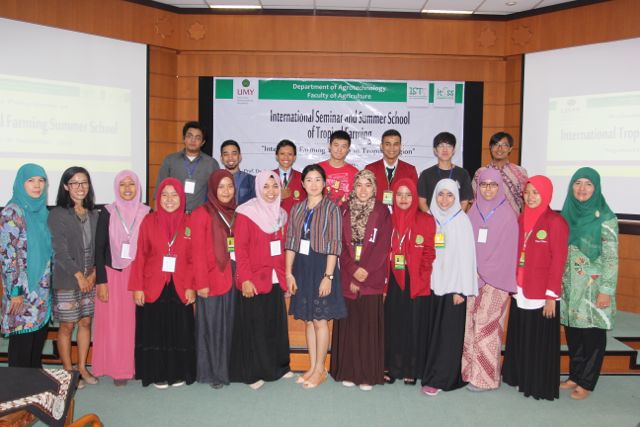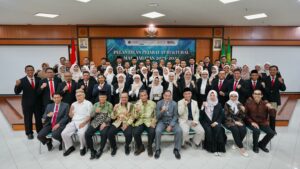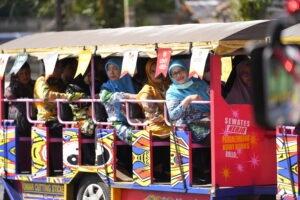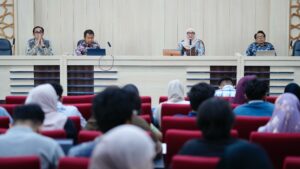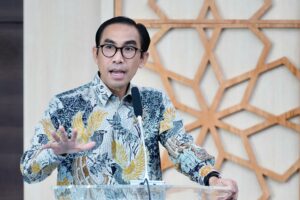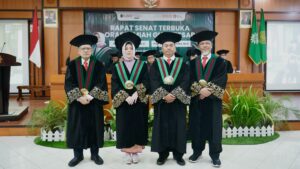The tropics are appropriate areas to agricultural development. For one reason, the areas have two seasons, namely rainy and dry season so that cultivating season can be noticed to produce good crops. However, unpredictable climate change in the tropics causes that the tropical crops is under the subtropical crops or other areas. For instance, the small amount of rainfall in Thailand impacts on the water saving is not adequate for a-year agriculture. Bad water quality of the water saving will also bring about the crop quality. The explanation was presented by a lecturer of Khon Kaen University of Thailand Dr. Arunee Promkhambut in International Seminar and Summer School of Tropical Farming (ITFSS). The event was organized by Agricultural Department, Faculty of Agriculture, Universitas Muhammadiyah Yogyakarata (UMY) on Tuesday (1/12).
Tropical crops are unstable, and one of the causes is that farmers do not optimize the use of the water saving in rainy season. It can lead to the long dryness and the limited water for irrigation so that the crops will not be satisfying, and the number of crops will alleviate, indeed. “Thus, good water management in the tropics is necessary the crops will not be under the crops of other subtropical areas. Farmers are supposed to be able to utilize two seasons of the tropics to produce good crops, but the fact is vice versa,” Dr. Arunee maintained.
Besides, an agricultural lecturer of Univesity of Gadjah Mada (UGM) Prof. Dr. Ir. Edhi Martono, M.Sc. mentioned that 40-45% farming areas are located in the tropics so that tropical agriculture brings impacts on the world agriculture. Nevertheless, various factors effect on the agriculture so that the tropical crop quality is not as good as subtropical crops. One of the factors is indeterminate climate change of the tropics.
Therefore, according to Prof. Edhi, several to-do-lists of tropical farmers and public to confront the climate change is through utilizing natural resources wisely and efficiently, reducing gas greenhouse, and doubling the shares of renewable resources of primary energy for electrical power. “What needs to foster is not only the development of building, but also the growth of farming areas. In fact, the increasing of world population will impact on agriculture. None of human activities can provide food for the world population, but agriculture,” he argued.
Apart from the agricultural issues, chief of ITFSS Chandra Kurnia Setiawan, S.P., M.Sc., stated that the International Seminar and Summer School was a support to internationalize UMY as World Class University. Bringing ‘Tropical Farming’ into the event theme aimed at understanding further the impacts and factors of the tropics in Asia regions toward the agricultural quantity and quality development. “Indonesia is one of the tropics so that there must be a lot of excesses and shortages influencing tropical farming. One of them is two seasons of the tropics, namely rainy and dry season,” he expressed.
Additionally, the ITFSS was joined by five Asia countries; those are Thailand, Malaysia, South Korea, China, and Indonesia. The event was conducted on 1-9 December 2015 at UMY.
